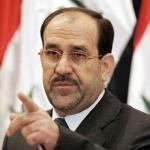 Almotamar.net Google News
Almotamar.net Google News - BAGHDAD -- Academics are being assassinated, prisoners are being tortured, women are being murdered by their own families in so-called "honor killings," and civilians continue to be cut down by rampant violence, the United Nations said Wednesday in a report painting a grim picture of life in Iraq.
The report, which covers from Jan. 1, 2007 through March 31, was most notable for what it did not include: the number of civilian deaths.
That's because the Iraqi government refused to release those numbers, the U.N. spokesman, Said Arikat, said as he presented the organization's 10th such summary of the human rights situation in Iraq.
However, numbers obtained from various ministries by the Times indicated that already this year, 5,509 civilians had died violently in Baghdad province alone, which includes the capital.
In its last report before this one, issued in January, the U.N. said that 34,452 civilians had died in violence last year, a figure it based on information from government ministries, hospitals and medical officials. But the Iraqi government said the U.N. estimate was highly exaggerated, and it would not give information for the newest report.
The government criticized the latest report as well, saying it "lacks accuracy" and balance.
Iraqi officials did not give an official reason for withholding the casualty numbers, but Ivana Vuco, a U.N. human rights officer, said they made clear that they believed releasing high casualty numbers would make it harder for the government to quell unrest.
"We were told they were concerned that people would misconstrue the figures, to portray the situation very negatively, and that would further undermine their efforts to establish some kind of stability and security in the country," Vuco said.
The government's stance comes at a time of growing public impatience with the inability so far of a new U.S.-Iraqi security plan to quell violence, despite the addition of thousands of troops in Baghdad and neighboring provinces.
It also shows the difficulty of obtaining accurate information about civilian casualties in the country.
The U.S. military does not count civilian deaths that occur during its operations, and even when the government has provided figures, human rights groups have said they were too low.
This has led to wildly varying estimates. Last October, the medical journal Lancet estimated that more than 600,000 Iraqis had died since the U.S. invasion in March 2003. In January, the Iraqi government put the previous year's death toll at 12,357, far lower than the U.N. estimate for the same time period.
The numbers obtained by the Times indicated that civilian deaths, which had been 1,991 in January, dropped to 1,646 in February -- the month the security plan began -- then rose to 1,872 in March. That could be a reflection of what U.S. and Iraqi military officials acknowledge has been a rise in bombings targeting crowded public areas since the crackdown began.
The figures also showed that Iraqi police were dying at a far higher rate since the security plan began. In January, 59 police died. The number for February was 132, and it was 165 in March.
Police increasingly are being targeted by insurgents who view them as collaborators with the U.S.-backed government. Nine officers died today when a suicide bomber blew himself up in their midst in a town in Diyala, a stronghold of Sunni Muslim insurgents.
Police also are dying at a higher rate because of the number of bombings targeting traffic checkpoints, which usually are manned by policemen, the military says.
Among the U.N. report's findings: more than 200 academics have been killed since the start of the war, for sectarian reasons or because of their largely secular views and teachings; detainees in Iraqi-run prisons are frequently tortured or forced to confess to alleged crimes; at least 40 women in the northern semi-autonomous region of Kurdistan have died this year in suspected "honor killings."
Such deaths, many of them from burning, followed family members' accusations of immoral conduct involving the victims, the report said.
Even without official casualty numbers, it was not difficult to get an idea of the high death rate in the country based on the day's bloodshed. In addition to the police officers' deaths, at least three people died and eight were injured today when a roadside bomb went off near a gas station in the northern neighborhood of Shaab.
Two more civilians died when rockets slammed into a market near Zafaraniya, southeast of Baghdad. A rocket attack killed 10 people in the same area Tuesday. Another rocket attack killed two people southwest of Baghdad.
________________________________________

